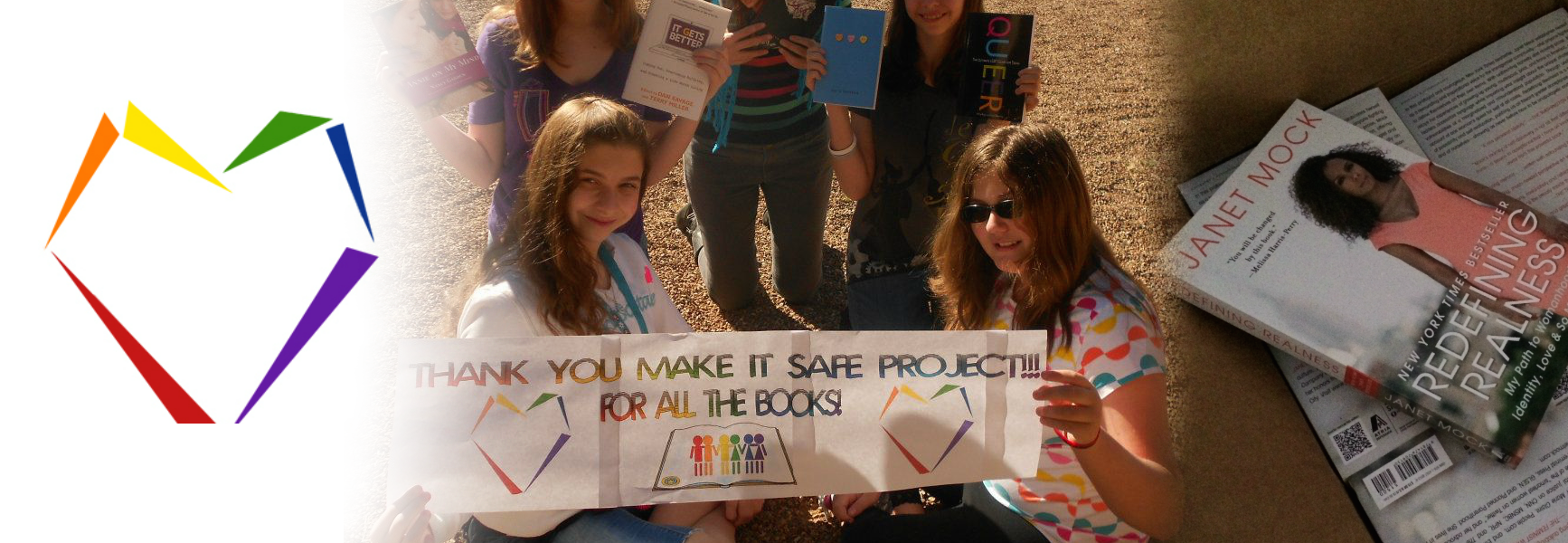by Carly F.
Living in a very conservative community in Arizona, I found a lot of resistance trying to implement any program in my K-8 school to fix the constant use of anti-gay language that’s used there. After talking with both my school principal and the district superintendent, who made it known that they were against bringing anything focused on LGBT-bullying into my school or district, and researching the laws and court cases applying to Gay-Straight Alliances (which said only students in high schools had a right to start one), I soon realized starting a GSA at my school was not going to happen, at least not anytime soon. Yet, there was still a need for something like a GSA in the community. And so, I decided to start a GSA outside of school and open to anyone in my town who was between 10 and 18.
There were a lot of benefits to starting a GSA on my own, the most obvious and important being not having to deal with a school or some other organization in convincing them to do it. Another great thing about it was that myself and the other youth who joined (all my friends so far, but we hope to expand soon) got to make pretty much all the decisions about what we do and how we do it without someone higher up having to rubber-stamp everything. Better yet, we wouldn’t have to deal with schools that want to try and pretend the GSA doesn’t exist or limit access to resources that other clubs may have.
But there were certainly drawbacks to starting a GSA on my own. The freedom of being practically on my own organizing it was also a negative, because I had to do a lot of organizing, including finding members and finding a place to meet. I originally thought that place might have to be at my house, but I didn’t like the idea because I wanted it to be a more public place, where strangers could come and join. And I certainly didn’t think someone who didn’t know me would want to come to a stranger’s house to join the GSA, as having it at a house would make it seem a little less legitimate. Luckily, my church has been really supportive in all the work I’ve been doing against heterosexism and LGBT-bullying (I know this may seem surprising, but I go to a pretty liberal church that’s open and affirming. We even have a rainbow banner up!). Anyways, they let me use the youth room to meet, which seemed like a much better option then my house, and the youth director gave me a lot of support in organizing everything, since he’s worked with non-profit immigration groups a lot and knew a lot about organizing and running meetings.
Eventually, we had our first meeting, which consisted of me, my sister, three of my friends, and some pizza. In the small youth room with Think B4 You Speak posters from GLSEN that I had hung up, we discussed what our mission as a club would be, and how we might accomplish our goals. We’ve met a couple times after that, gained one new member, and have held a celebration of National Coming Out Day and Ally Week. Our goals for the future are gaining more members, talking to our school board about implementing programs and/or comprehensive policies that will help prevent LGBT-bullying, and trying to get the school to allow us to participate in the Day of Silence. We also want to partner with the Open & Affirming committee at my church to host a panel for the community on the subject of “What if my kid is gay?” which will hopefully help parents of LGBT teens become more accepting and supporting of their teen’s identity, or just give them helpful information.
I feel like our GSA, though quite small, has the potential to do a lot of things. We’d like to thank the Make It Safe Project for helping us work towards one of our goals, educating the community about LGBT issues, by sending us books that will hopefully be made available to teens in our community. And I would definitely encourage any kid who wants to start a GSA to not give up. Just try and find someone or some organization or group in your community that can support your goals, and you’ll be able to do it and make a huge difference in your school or community.

